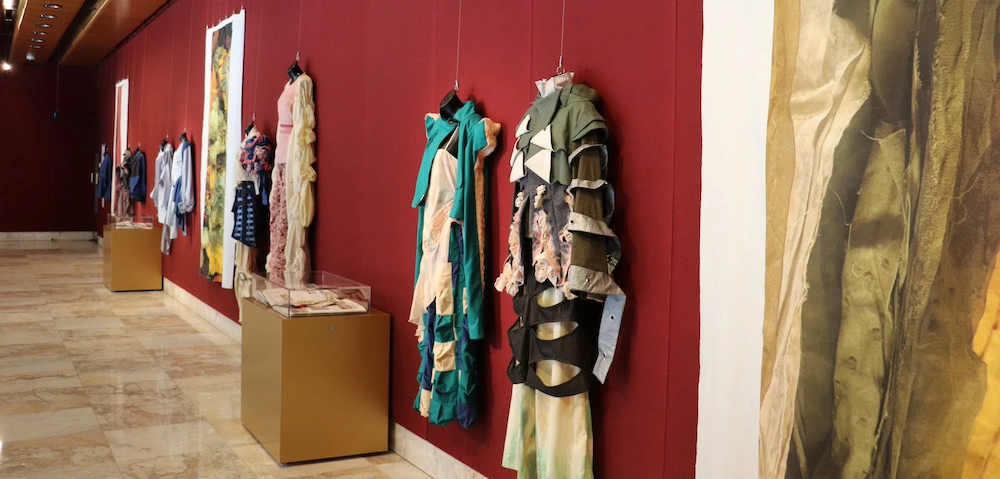
UNSW in turmoil over poor bookkeeping, as students protest

By ROBBIE MASON
The Fair Work Ombudsman (FWO) has launched legal action against UNSW, accusing the top university of “serious contraventions” of the Fair Work Act between 2017 and 2022. Legal proceedings relate to the university’s poor record-keeping, pay slips and a pattern of late wage payments.
The FWO’s announcement has inflamed tensions between UNSW management, on the one hand, and the National Tertiary Education Union (NTEU) and students, on the other hand.
UNSW students vented their frustrations at an on-campus rally today in Kensington, slamming university management for lavish spending habits, the misuse of student fees and administrative negligence.
Litigation appropriate due to extent of violations, FWO says
UNSW’s alleged breaches of industrial relations laws are so severe that the university’s bookkeeping practices have obscured the identities of underpaid staff – a well-documented issue in the tertiary education sector.
A report released by the National Tertiary Education Union (NTEU) earlier this year showed that wage theft is endemic across the nation’s public universities. The union estimates that Australian universities have underpaid academic staff by a staggering total of at least $107.8 million. Some universities, such as the University of Sydney, have admitted to wrongdoing.
Media reports have revealed that tertiary teaching staff are often trapped in cycles of insecure work. Furthermore, they face per piece pay rates for essay marking that are woefully inadequate.
Detailing the profound impact of staff underpayment and casualisation on students’ education at UNSW, UNSW Education Officer Cherish Kuehlmann provided City Hub with an extensive list of grievances: “overblown class sizes”, instances of courses with high enrolments being axed and stressed teachers being unable to provide adequate feedback to students.
“Increasingly, I’m hearing reports of tutors speaking to their students in the first week of term about their conditions,” she said.
“They’re setting expectations for students that they can’t expect as much from their tutors because they’re already being worked to the bone.”
For litigation purposes, the FWO has selected a sample of 66 allegedly impacted casual academic staff from UNSW’s Business School.
Many UNSW employees have unlawfully received entitlements and pay several weeks or even months after completing the work in question, the FWO claims.
Fair Work Ombudsman Anna Booth said, “it is completely unacceptable for an employer’s record-keeping practices to be so poor that they prevent us from assessing what hours its employees have worked and whether it has paid its employees their full lawful entitlements.”
“We are committed to driving cultural change in the university sector. Universities need to place a much higher priority on investing in governance, human resources and payroll functions to ensure they comply with workplace laws,” Booth continued.
The FWO has made universities a specific focus recently, having already twice launched proceedings against the University of Melbourne for underpayment of staff.
NTEU National President Dr Alison Barnes stated, “the sheer number of wage theft legal proceedings against public universities is damning evidence this shocking practice is rife across the sector.”
The FWO has been investigating UNSW since the university contracted the national industrial relations regulator in June 2020 to self-report non-compliance with workplace laws. UNSW is currently undertaking a review of payments to casual academic staff in response to sustained pressure from the NTEU and students.
A UNSW spokesperson said, “UNSW is committed to ensuring all staff receive the correct entitlements in line with UNSW enterprise agreements and relevant legislation.”
“UNSW has been progressing repayments to a significant number of impacted current and former staff and has so far repaid approximately $11 million, including interest and superannuation. The review is ongoing.”
“UNSW has and will continue to dedicate significant resources to improve pay-related systems and processes to deliver ongoing and long-term improvements for all staff. This includes extensive training and education programs to clearly outline record keeping and pay obligations,” the spokesperson continued.
Activists and union members welcome trial
UNSW Education Officer Cherish Kuehlmann said the university’s track record with bookkeeping amounts to “conscious neglect”.
“I hope [affected] staff are fully compensated with interest”, she stated.
The NTEU has also welcomed the initiation of legal action by the national workplace relations enforcer.
In a media statement, Dr Barnes, NTEU National President, piled blame onto the “completely broken” governance model across the sector, while NTEU NSW Division Secretary Vince Caughley labelled the wage theft crisis “a disgrace”.
Associate Professor Richard Vickery, NTEU UNSW Branch President, said that UNSW staff have faced soaring workloads after job cuts in 2021.
“Management must show it is serious about fixing the unacceptable practices that have sadly led us to this point,” Vickery stated.
Critics have lost patience with the corporate business model of higher education in Australia and the casualisation of the sector’s workforce.
Senator Mehreen Faruqi, Australian Greens Deputy Leader and spokesperson on Education, told City Hub that “decisive actions is needed right now”
“The Federal Government has a clear role in mandating that universities set publicly-available targets for increasing secure work and reducing casualisation,” she said.
“We need to cap VC salaries and overhaul university governance to shift the balance of power from top heavy executives and their corporate cronies to staff and students.”
UNSW management in hot water
The FWO is not the only watchdog scrutinising UNSW management. The NSW Independent Commission Against Corruption (ICAC) is currently investigating UNSW over possible breaches to integrity laws, which relate to the appointment of UNSW Vice-Chancellor Atilla Brungs in 2021.
An investigation by The Saturday Paper in August this year detailed a lack of transparency in management decisions and bias in recruitment selection, as well as lavish spending on personal amenities for upper management staff while the university claims its budget is tight.
Staff cuts, degree mergers and reduced revenue from international student fees have plagued the sector in recent years. UNSW has abolished some courses without adequately consulting staff and students, critics assert.
The Saturday Paper’s report revealed that students’ university fees at UNSW cover the $3000 Royal Sydney Yacht Club membership and anchorage fees of UNSW Vice-Chancellor Atilla Brungs. The exclusive club in Sydney’s lower north shore is invite-only.
An email obtained by that masthead also showed that UNSW Sydney funded $7000 in home renovations for the Vice-Chancellor. In addition to this, Brungs received a substantial bonus of unknown quantity.
In light of these revelations, UNSW students and supporters staged a protest today at the university’s Kensington campus. Speakers praised the FWO for taking action against UNSW.

Speaking excitedly of the rally’s success, Kuehlmann explained, “today the action was about rebuilding a culture of standing up to this kind of status quo.”
Kuehlmann said “lots of students” were “shocked” to find out about the university’s spending habits today.
“It’s not hard for students to put two and two together and realise that their money should be going towards their education, which they’re paying a premium for already, instead of lining the pockets of UNSW management.”
Kuehlmann said labelled the university’s frivolous expenditure “borderline cronyism and corruption”.
“I think it really starkly exposes the inequality at the heart of the Australian higher education system right now.”
“UNSW Vice-Chancellors, as well as Australian Vice-Chancellors in general, are some of the highest paid [VCs] in the world. They are part of the millionaires club and they use student fees and the exploitation and underpayment of staff to line their pockets. Meanwhile, students and staff have to suffer a cost-of-living crisis”, Kuehlmann stated.
“Hundreds of students here at UNSW line up at the food bank, just to save 100 dollars on grocery a week”.










